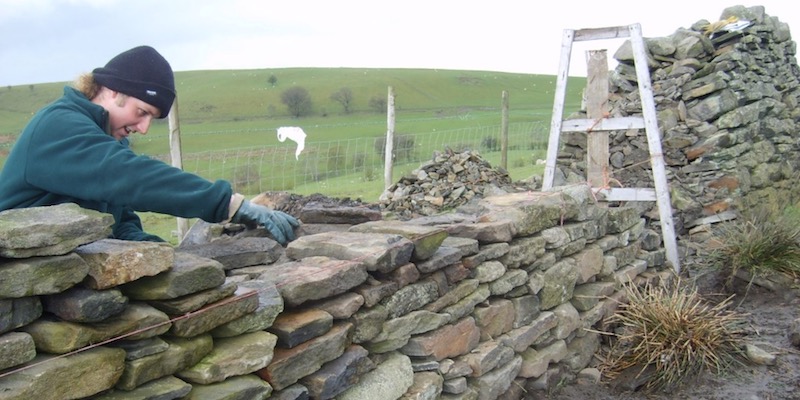We’re well past the first quarter of the year, which means the election is getting closer and closer. Of course, with that comes the fact of 24/7 political rhetoric getting more intense. Our current news cycle primarily focuses on the propaganda dujour-the proHamas protests/riots-which is meant to distract from the economy, wokeness, the national debt, and what used to be a southern border.
It’s that last one which is being conveniently ignored the most. Short of armed guards and land mines, couldn’t there be some possible way to stop the invasion? Some way like, oh, I don’t know, maybe a structure of some kind?
wall: “a high thick masonry structure forming a long rampart or enclosure chiefly for defense” (Merriam-Webster Collegiate Dictionary, 1994)
Well, that sounds like a good idea.
But…”NO! That’s immoral! Unnatural! It’s not who we are!”…say the woke elitists who have private secuity and live in gated communities.
Not who WE are? Let’s take a look briefly at how walls functioned throughout human history before THEY decide who WE are.
Ancient cities were usually walled off for protection against everything from wild animals, bandits, and invading armies from the kingdom next door.
What is now the City of Jerusalem in Israel first saw human habitation in that area around 4000 BC. The city itself was established around 1400 BC. King David conquered it in 1000 BC, making it his capital.
In 597 BC Babylon, under King Nebuchadnezzar, captured the city and took many high ranking Jews into captivity. The few who remained in Jerusalem revolted in 587 BC, which resulted in another army capturing the city again and taking more captives.
Nehemiah was a Jew born in Babylon during this captivity. He was king Artaxerxes cup bearer, which means he was a trusted person in the king’s inner circle, responsible for making sure there was no poison in the drinks he poured and served in the royal household.
The O.T. book of Nehemiah tells how he received a burden regarding the need for Jerusalem’s walls to be rebuilt (Chap. 1:1-4). He then approached Artaxerxes regarding his burden (2:5). Because of his position and established loyalty, the king granted him permission to leave (2:6); granted travel documents (2:7); gave him building materials (2:8); provided man power in the form of a military escort and transportation (2:9).
Nehemiah was able to encourage the population to take responsibility for sharing his burden and working on the walls of the city (2:17).
It wasn’t easy, though. There was ridicule and opposition (4:1-3) throughout the building process. However, upon the wall’s restoration, Nehemiah was also able to complete a census (Chap. 7), and restore the Law Of Moses along with the priestly order and temple worship (Chap. 13).
In plain, simple terms, Nehemiah was a builder, a motivator and a hands on organizer. He wasn’t royalty, the equivalent of a politician in the ancient world. He simply used the connections he had to see his burden for the walls of Jerusalem become a reality. It took a builder with a burden to accomplish what the people living there couldn’t do.
Walls were always important in the ancient world. Rome, established in 756 BC, started building walls in the next century. They were upgraded by Emperor Aurelian between 270-275 AD, and were roughly 11.8 miles around. Hadrian’s Wall was 73 miles across Britian, separating Roman Britania from the barbarians of Scotland (122 AD) Twenty years later in 142 AD, another wall, called the Antoine Wall, was built 100 miles further north.
The Great Wall of China is one of mankind’s greatest engineering feats. It’s not just one wall, but several sections, running east-west and some north-south, covering over 13,000 miles. It was started in the 7th century BC, added to in the 3rd century BC, and continued from the 1300s until the last section in 1644. It basically walled off China from the Mongolian steppe and the barbarian hordes who swept down from the north.
So, the ongoing theme historically is that walls are an established means of protection.
With that in mind, let’s briefly look at what President Trump attempted with the few sections of wall he managed to get started during his first term.
Granted, he was born into wealth in NYC. He chose to follow his father as a developer and builder. He could have gone other routes, but he didn’t.
To do what he did, especially in New York, he had to not only develop properties, but had to likewise develop his ability to negotiate.
This was crucial because the building trades (i.e. unions) in NYC at that time had a lot of mob influence. Trump had to learn how to negotiate, motivate and organize effectively. Any problems might mean a visit from a large man named Guido who would help you sort things out…or else.
Before he got into politics, Trump was also obviously very good a working both sides of the aisle. He made donations to both parties and while it’s speculation to say this, no doubt he knows where some of the proverbial bodies are buried and all the details of everyone’s backstory.
There are two main reasons he’s so hated: 1.) He knows too much about too many people; and 2.) he’s not Hillary Clinton.
Perhaps his biggest contribution, regardless of how little of the needed wall was built during his time in office, is that he has more than raised awareness of how endangered our national sovereignty is without one. He has shown what an organized, motivated builder who is a real leader can accomplish. This is the type of person God has chosen to build walls when they are needed.
In conclusion…
Want to know God’s real attitude toward walls? Read what the New Jerusalem will look like in Rev. 21:12-14? Check out Prov. 18:19
*I’d like to thank my wife Jen for giving me the idea for this article.




